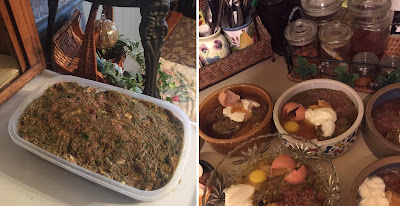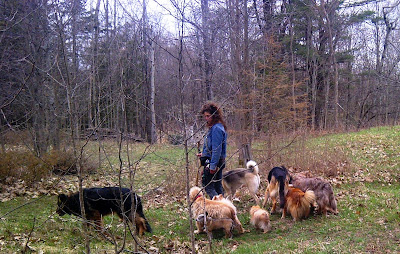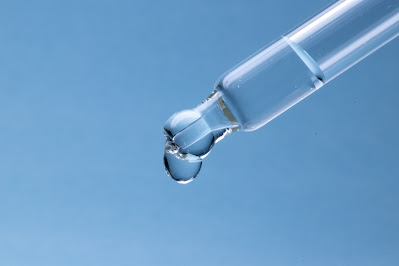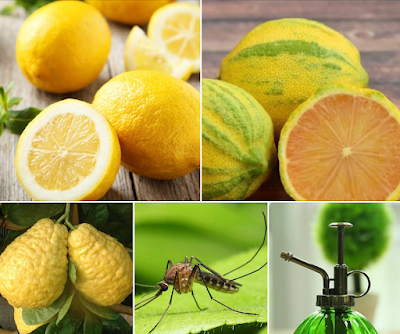Probiotics for Dogs, Essential for Optimal Health - What, Why, When and How
The Definition of Probiotics
The original meaning of the word
probiotic is ‘benficial to life’. Probiotics are live microorganisms which when
ingested in appropriate amounts (not to little, not too much) are beneficial to
the host and help prevent disease…and in the case of this discussion ‘host’ is
defined as dog!
These micororganisims are live, friendly
bacteria that live in the gastrointestinal tract (GI tract). Dogs have over 500
types of bacteria living in their GI tract, humans have just over 400. The most
common good bacteria are L. acidophilus and Bifidobacterua bifidum.
The Benefits of
Probiotics
Probiotics can play a huge role in protecting your dog’s
immune system. The good bacteria found in probiotics fight the un-friendly, 1pathogenic
bacteria that are also found in the GI tract.
The skin and the mucous membrane linings of the
gastrointestinal, genitourinary and respiratory tracts are the first line of
defense against invasion of microbes and parasites - the GI tract is the largest
of these barriers.
When a dog does not have enough good bacteria residing in
his/her GI tract, the bad bacteria flourish unchecked and take over - this
condition can cause:
- Cadidiasis (overgrowth of Candida albicans, a bad bacteria that causes yeast infections);
- Digestive upset due to E. coli, which causes diarrhea;
- Lethargy.
On
a daily basis physiological (real or perceived physical threat) and psychological
(emotional threats i.e. anxiety) stress can cause fluctuations in the balance
between good and bad bacteria in the GI tract.
Probiotics
give the naturally occurring good bacteria found in the GI tract a population
boost which in turn…
- Alleviates and helps prevent constipation, diarrhea and IBS;
- Enhances immune system response (thus helping to fight cancer and other diseases, illness, viruses);
- Encourages anti-tumour and anti-cancer activity in the body;
- Increases the ability to absorb and utilize nutrients such as B complex vitamins, calcium, copper, iron, phosphorous, zinc;
- Increases the GI tract’s ability to digest food;
- Helps fight bad breath;
- Helps reduce gas and reduces the odour of stools;
- Helps prevent shedding and scratching caused by stress when GI tract good flora is compromised;
- Helps in the fight against anxiety and depression;
- Replenishes the good bacteria that are killed-off when taking antibiotics;
- Reduces incidence of yeast infections (Candida), yeast related rashes and skin problems.
- Replenishes good flora killed-off by antibiotics.
It is important
to note that antibiotics are the premier over-subscribed drug for both humans
and dogs alike. Enabling your dog’s immune system to work at optimum
capacity helps to ensure that your dog will not require antibiotics.
The two biggest issues with antibiotics are:
The two biggest issues with antibiotics are:
One - Antibiotics kill the kill the beneficial bacteria (in your dog's GI tract) not just the pathogenic bacteria. When this occurs the delicate but healthy balance of the tract is disrupted which can lead to the overgrowth of yeast enabling the formation of yeast colonies. Yeast bacteria (hyphae) can bore holes through the lining of the intestinal wall - resulting in a condition called 'leaky gut'. This leaves your dog susceptible to a wide spectrum of health problems such as:
To lesson the chance of your dog having to take antibiotics:
- Allergies;
- Arthritis;
- Asthma;
- Autoimmune Disorders (when the body mistakenly attacks healthy body tissue);
- Digestive problems;
- Kidney Problems, and;
- Skin Problems.
To lesson the chance of your dog having to take antibiotics:
- Make sure your dog is on a good diet;
- Learn about alternatives to prevent, and remedy issues without the use of antibiotics, for example treating:
- Ear infections;
- Good oral hygiene;
- Outbreaks of candida.
When Should your Dog Take Probiotics?
Probiotics are
essential to the maintenance of optimal health therefore...
- Probiotics
should be included as part of a healthy puppy, teenage and adult dog’s daily
diet;
- If your dog is
on antibiotics you should be supplementing your dog’s diet with Probiotics as
antibiotics kill bacteria in the GI tract - bad flora and good flora alike, which
puts your dog’s immune system at risk;
- Your dog will be better protected against the side affects of other common stressors (such as vaccinations) when he/she has a back-up system to replace good GI tract flora.
When Should Your Dog Not Take Probiotics?
If your dog is
undergoing treatment for disease (i.e. cancer and is receiving chemotherapy)
taking probiotics may be too much for the dog’s weakened system. If your dog is
suffering from any disease you must speak to your veterinarian before adding
any supplement such as probiotics to your dog’s diet.
Don’t Be Fooled By
Advertising
Many
dog food manufactures promote their kibble, canned food and treat products as containing
probiotics.
To be effective, probiotics must be live. The beneficial micro-organisms and
probiotics required by the GI tract are susceptible to heat damage. Most
commercially made dry pet food is sterilized or pasteurized - canned food is
prepared using dry heat. The only way in which the manufacturers can add
probiotics to these foods is by coating the products with a liquid or powder after
processing is complete. This presents two fundamental problems:
- The coating is inconsistent, and;
- Preservation of the probiotic is difficult.
Advertising that the food contains probiotics is just a means to market the
product, however the actual benefit derived from the 'probiotics' added to these foods is minimal if any.
In
order to ingest enough probiotics on a daily basis your dog requires a high
quality concentrated source of probiotics.
Options for Providing
Probiotics to Your Dog
- You can purchase probiotic supplements, or;
- You can feed your dog food that is rich in naturally occurring probiotics.
Probiotic Supplements:
Probiotic
Supplements for dogs are not regulated in many countries. Like everything else
in the pet food industry, not all probiotic supplements are created equal,
therefore you really need to know how to choose a good supplement.
There
are some very good probiotic supplements among the many average and
poor ones - to identify the good supplements you really need to know
what to look for. Do you know how to tell which of the supplements shown below is a really good product, which are average and which provide little benefit?
Beware! Just because
a manufacturer says the product is probiotic does not mean that it is a
probiotic.
Some products labelled ‘probiotic’ do not include any clinically
validated strains. Tests carried out on multiple products have revealed that
many manufactures and retailers are selling probiotic supplements that do not
include ingredients as noted on the product label and/or include dangerous
contaminants. Another thing to keep in mind - a probiotic supplement is not
cheap to purchase, especially if you have multiple dogs.
If you would
like to understand how to choose a good probiotic supplement you can read this article.
Foods That Are Rich in
Naturally Occurring Probiotics
You can make
sure that your dog receives very high quality probiotics by adding these dog-safe
amazing foods to your dog’s diet…
1. Kefir
2. Sauerkraut
If you would
like to learn about the amazing benefits of these two foods and how to incorporate them into your dog's diet, etc. you can read this article.
Holistic Diet, Nutrition, Wellness Services Tailored to Your Individual Dog and Cat
For information about my holistic diet, nutrition and wellness services, visit my holistic wellness services page.
Maintain good health | Address acute and chronic health issues | Pre and post surgery support and recovery
My holistic wellness services are available worldwide via video consultation.
🌎 USA | Canada | UK | Europe | Australia | New Zealand | Asia | South and Central America | Africa | UAE
📱FaceTime | Facebook | Skype | WhatsApp
To set-up your holistic wellness consultation get in-touch via email, go to my contact me page.
Holistic Behavioral Services for Your Dog
For information about my holistic behavioral services, visit my holistic behavioral services page.
For dogs of all ages, sizes and breeds.
My behavioral services are available worldwide via video consultation.
🌎 USA | Canada | UK | Europe | Australia | New Zealand | Asia | South and Central America | Africa | UAE
📱FaceTime | Facebook | Skype | WhatsApp
To set-up your holistic behavioral session get in-touch via email, go to my contact me page.
Affiliations to Companies
✓ None.
✓ I don't sell food, supplements, or other products.
✓ I'm not aligned with any companies.
Article and graphics by Karen Rosenfeld.













